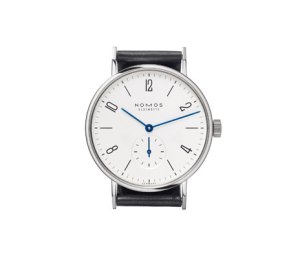Tchibo = Fast consumption: “Tchibo Check” Monday on WDR
Posted: January 9, 2011 Filed under: TV report | Tags: CSR, programme, Tchibo, WDR Leave a commentMonday evening the German TV (WDR) broadcasts a documentary about the German retailer Tchibo. Tchibo belongs to German’s top 10 garment importers and sells its very cheap products in over 900 shops and 40.000 “depots” in Europe (latter are basically shelfes in shops). Its turnover in 2009 was more than 3 Billion Euro, of which textiles amounts to an estimated third.
Tchibo is famous for its coffee, but every week the discounter propagates a whole range of new products within its “theme worlds” – and this way produces over 2.000 products a year. Basically, one week the discounter offers rainjackets and radio alarm clocks, while it sells men’s cotton pyjama in the next. Doing this, Tchibo seems to turn its back to any movement termed “slow” – it is the McDonalds of non-food items or the opposite of what Manufactum stands for. Besides representing fast consumption, Tchibo’s also offers discount prices.

 This week, Tchibo offers business shirts for 30 CHF (30$), T-Shirts for 10 CHF and a watch (that deliberately tries to imitate German design classic NOMOS Tangente) for 100$. The low prices are surely also a result of economies of scale and Tchibo’s distribution system. However, I guess that many people run into a Tchibo shop and come out with products they never wanted to have, but couldn’t resist due to the low prices.
This week, Tchibo offers business shirts for 30 CHF (30$), T-Shirts for 10 CHF and a watch (that deliberately tries to imitate German design classic NOMOS Tangente) for 100$. The low prices are surely also a result of economies of scale and Tchibo’s distribution system. However, I guess that many people run into a Tchibo shop and come out with products they never wanted to have, but couldn’t resist due to the low prices.
In 2005 the German CCC campaigned against Tchibo, showing that some of the discounter’s suppliers in Bangladesh violated basic working rights. In 2006 the company started dealing with CSR in non-food. Today, Tchibo participates in various initiatives, part of its products are labelled with well known social or ecological certificates and last year it became “foundation stage member” of the ETI. It’d be interesting to see how Tchibo manages to make their 950 suppliers pay living wages, as demanded by the ETI rules – if that ever happens. The company also undertook a PPP-project together with the GTZ to improve social standards in some factories – and many other CSR efforts. However, so far, there are no independend and detailed results of Tchibo’s CSR efforts.
Surely the company improved in its CSR policies – it would take at least some hours to read through all the CSR reporting you find on the corporate website. What I am missing in the reporting is a quick overview of the basic facts. Using organic cotton is surely positive. But I did not find any mentioning of environmental standards regarding the textiles production. Why does Tchibo use Organic Exchange instead of a more comprehensive certificate, like, e.g., the GOTS certificate? Also rather disappointing: In its sustainability report the company argues that in 2009 it used 316 tonnes organic exchange certified cotton (which might sound a lot), which only represented 1.6% of the raw cotton used for Tchibo products in 2009.
I am looking forward to the documentary, hoping to get new insights: Der Tchibo Check on Monday, 10th of January 2011 @ 21.00.

